Marriage is seen as a means to establish a stable and harmonious family unit, emphasizing the significance of Marriage in Islam. Islam values the concept of companionship and mutual support between spouses. Marriage provides a framework for love, compassion, and understanding within a relationship, highlighting the importance of Marriage in Islam. It also serves as a means for procreation, allowing Muslims to fulfill their responsibility of raising righteous and pious children.
Marriage in Islam serves as a vehicle for personal growth and development, highlighting the significance of Marriage in Islam. It is believed that through the challenges and joys of married life, individuals can cultivate qualities such as patience, selflessness, and forgiveness, highlighting the importance of Marriage in Islam. These virtues contribute to the overall well-being and spiritual upliftment of both spouses.
The importance of Marriage in Islam is multifaceted, emphasizing the significance of Marriage in Islam. It fulfills religious obligations, establishes strong family units, and allows individuals to grow personally and spiritually, emphasizing the importance of Marriage in Islam. Muslims recognize marriage as a divine institution that brings blessings and fulfillment to their lives.
For those considering Marriage in Islam, it is essential to prioritize finding a compatible partner who shares similar values and goals, emphasizing the importance of Marriage in Islam. Seeking knowledge and guidance from Islamic scholars or imams can provide valuable insights into the principles and practices of a successful Islamic marriage, emphasizing the significance of Marriage in Islam.
Traditional Islamic Wedding Customs
"Traditional Islamic Wedding Customs hold deep significance and are meant to honor the sacredness of the marriage bond. These customs are followed in a traditional Islamic wedding to celebrate the union of two individuals. Here are some important traditional Islamic wedding customs:
1. Nikah ceremony:
The Nikah ceremony, which is the main event of a traditional Islamic wedding, is a formal contract between the bride and the groom in the presence of witnesses and an Islamic scholar or religious authority. The couple agrees to enter into a marriage and accept the responsibilities that come with it.
2. Mehndi ceremony:
The Mehndi ceremony, a pre-wedding event, involves applying henna on the bride's hands and feet. Traditionally, this ceremony is accompanied by singing, dancing, and celebrating with family and friends.
3. Walima:
The Walima, a wedding reception hosted by the groom's family, is a joyous celebration where family, friends, and community members come together to congratulate the couple and share a meal.
4. Modest dress code:
Both the bride and the groom dress modestly in traditional Islamic weddings, following the principles of Islamic modesty. The bride usually wears a beautiful and intricately designed wedding outfit, which may vary based on cultural influences.
5. Recitation of the Quran:
The Quran, the holy book of Islam, plays an important role in traditional Islamic weddings. During the ceremony, verses from the Quran may be recited to seek blessings for the couple's new journey together.
6. Exchange of vows and consent:
During the Nikah ceremony, the bride and groom exchange vows and give their consent to enter into a marital relationship. This exchange of vows symbolizes their commitment to each other.
These traditional Islamic wedding customs reflect the cultural and religious values of the Muslim community. They are followed with great reverence to celebrate the union of two individuals and emphasize the importance of love, commitment, and family in Islam."
Use of Wedding Rings in Islam
When it comes to the use of wedding rings in Islam, there are fascinating aspects worth exploring. From cultural variations to historical perspectives, we'll dive into the significance behind these practices. Unveiling diverse customs and tracing the rich historical context, this section sheds light on the role of wedding rings in the lives of Muslims. So, come along on this captivating journey to discover the intricate traditions and stories that surround this cherished symbol.
Cultural Variations
| Cultural Variations | Description |
| 1. Traditional Henna Ceremony | In many Muslim cultures, a henna ceremony takes place before the wedding. The bride and her female relatives and friends gather to apply beautiful henna designs on her hands and feet, symbolizing beauty, luck, and protection. |
| 2. Dowry Traditions | While some Muslim cultures have dowry traditions where the groom's family provides gifts or monetary offerings to the bride, other cultures discourage or do not practice this custom, putting more emphasis on the spiritual and emotional aspects of the marriage. |
| 3. Traditional Attire | Islamic wedding attire varies across different cultures. For example, in South Asian cultures, brides often wear vibrant and intricate bridal outfits, such as a sari or lehenga, while in Arab cultures, brides may opt for elegant and modest white gowns or traditional embroidered dresses. |
| 4. Wedding Feasts | The traditions around wedding feasts also differ. In some cultures, elaborate and grand feasts are arranged with a wide variety of dishes, while in others, smaller and more intimate gatherings are preferred. |
| 5. Wedding Music and Dance | The presence of music and dancing at Islamic weddings varies depending on the cultural norms. Some cultures embrace lively music and dance performances as part of the celebration, while others prioritize more modest and conservative forms of entertainment. |
One real-life example showcasing these cultural variations is the wedding of Fatima and Ahmed. Fatima, from Pakistan, had a week-long wedding celebration that included a henna ceremony where intricate designs were applied to her hands and feet. The couple also followed the tradition of exchanging gifts and the bride received a generous dowry from the groom's family. On the other hand, Ahmed, who comes from an Arab culture, had a simpler wedding ceremony where the focus was on modesty and spirituality. Both weddings showcased the cultural diversity and rich traditions within the Islamic community, emphasizing the importance of embracing cultural variations in celebrating love and marriage.
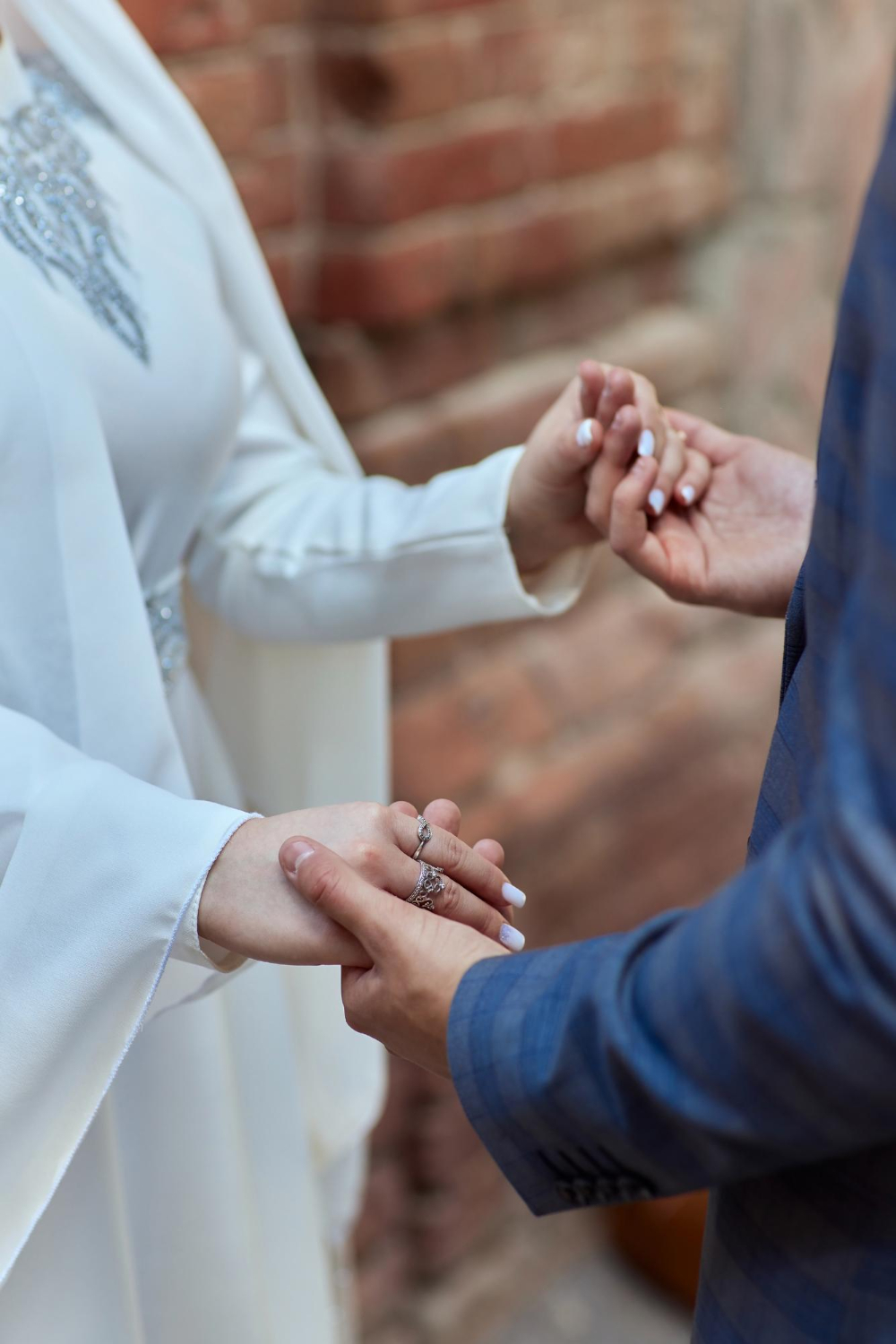
Historical Perspectives
The historical perspectives offer valuable insight into the use of wedding rings in the context of wedding traditions in Islam. It is not a widespread practice historically to use wedding rings in Islamic weddings. The exchange of rings is more commonly associated with Western cultures.
The absence of a strong historical precedent for wearing wedding rings in Islamic weddings can be attributed to cultural variations and different interpretations of Islamic teachings. While some Muslim communities have embraced the practice of wearing wedding rings, it is not considered a religious obligation or requirement.
Throughout history, marriage ceremonies in Islamic cultures have relied on other symbolic gestures and traditions to signify the union between a couple. This may include the exchange of other items, like gifts or dowries, to symbolize the commitment and blessings of the union.
It is important to note that views on wearing wedding rings in Islam can vary among individuals and communities. Some scholars and individuals may consider the practice permissible, while others may view it as unnecessary or even discouraged. Therefore, considering the diverse interpretations and opinions within the Islamic community is essential.
When examining historical perspectives on the use of wedding rings in Islamic weddings, it becomes evident that the tradition is not deeply rooted in the religion. While some Muslim communities have adopted the practice, it is not universally followed or considered a religious obligation. Understanding the historical context and cultural variations is crucial when discussing wedding traditions in Islam.
Views on Wearing Wedding Rings in Islam
When it comes to the topic of wearing wedding rings in Islam, there are various interpretations and opinions that exist. In this section, we'll uncover the different perspectives surrounding this practice. From exploring the diverse interpretations to examining the opinions of respected scholars, we'll dive into the rich tapestry of views on wearing wedding rings within the Islamic faith. So, let's delve into this intriguing topic and shed light on the nuanced discussions surrounding it.
Different Interpretations
There are different interpretations within Islam regarding the tradition of wearing wedding rings. |
Some interpretations consider the exchange of wedding rings as permissible and even encouraged. |
These interpretations emphasize that the act of wearing a wedding ring does not have any religious significance or symbolism. |
Other perspectives, however, view the wearing of wedding rings as not in accordance with Islamic teachings. |
This viewpoint argues that the wearing of jewelry, including wedding rings, goes against the concept of simplicity and modesty in Islam. |
According to these different interpretations, the focus should be on the spiritual and emotional commitment between the couple, rather than material possessions like wedding rings. |
Some scholars believe that wearing wedding rings is a cultural practice rather than a religious obligation. |
They argue that since Islam is a universal religion, it allows for cultural variations in wedding traditions. |
Therefore, it is important for Muslims to understand and respect these different interpretations and make informed decisions based on their own beliefs and cultural customs. |
Various Scholar Opinions
Here is a table presenting various scholar opinions on the topic of wearing wedding rings in Islam:
| Scholar | Opinion |
| Dr. Mohammed Salah | Wearing wedding rings is permissible in Islam as it is not explicitly prohibited. It should be done with the intention of following the customs and culture of the society, rather than considering it as a religious obligation. |
| Sheikh Assim Al-Hakeem | Wearing wedding rings is a cultural practice and not a religious requirement. It is allowed as long as it does not involve any prohibited actions or beliefs, such as considering the ring as a means of luck or protection. |
| Mufti Menk | Wearing wedding rings is not mentioned in the Quran or Hadith, therefore it is a matter of personal choice. It is important to avoid extravagant and expensive rings, as Islam promotes modesty and simplicity. |
| Dr. Hatem Al-Haj | According to his interpretation, wearing wedding rings is a cultural practice and not a religious obligation. It is permissible as long as it does not contradict any Islamic principles or lead to excessive adornment. |
A couple, Sarah and Ahmed, got engaged and were planning their Islamic wedding. They had different opinions on the tradition of wearing wedding rings. Sarah believed that exchanging rings symbolized their commitment and love for each other, while Ahmed thought it was unnecessary. To seek guidance, they consulted various scholar opinions. After hearing the different opinions, they realized that wearing wedding rings was a matter of personal choice and cultural tradition. They decided to respect each other's views and compromise. Sarah wore a simple wedding ring as a symbol of their love, while Ahmed chose not to wear a ring. On their wedding day, they exchanged heartfelt vows, embracing the essence of their Islamic union. Their wedding exemplified the beauty of diversity within Islamic traditions, showcasing the importance of mutual understanding and respect.
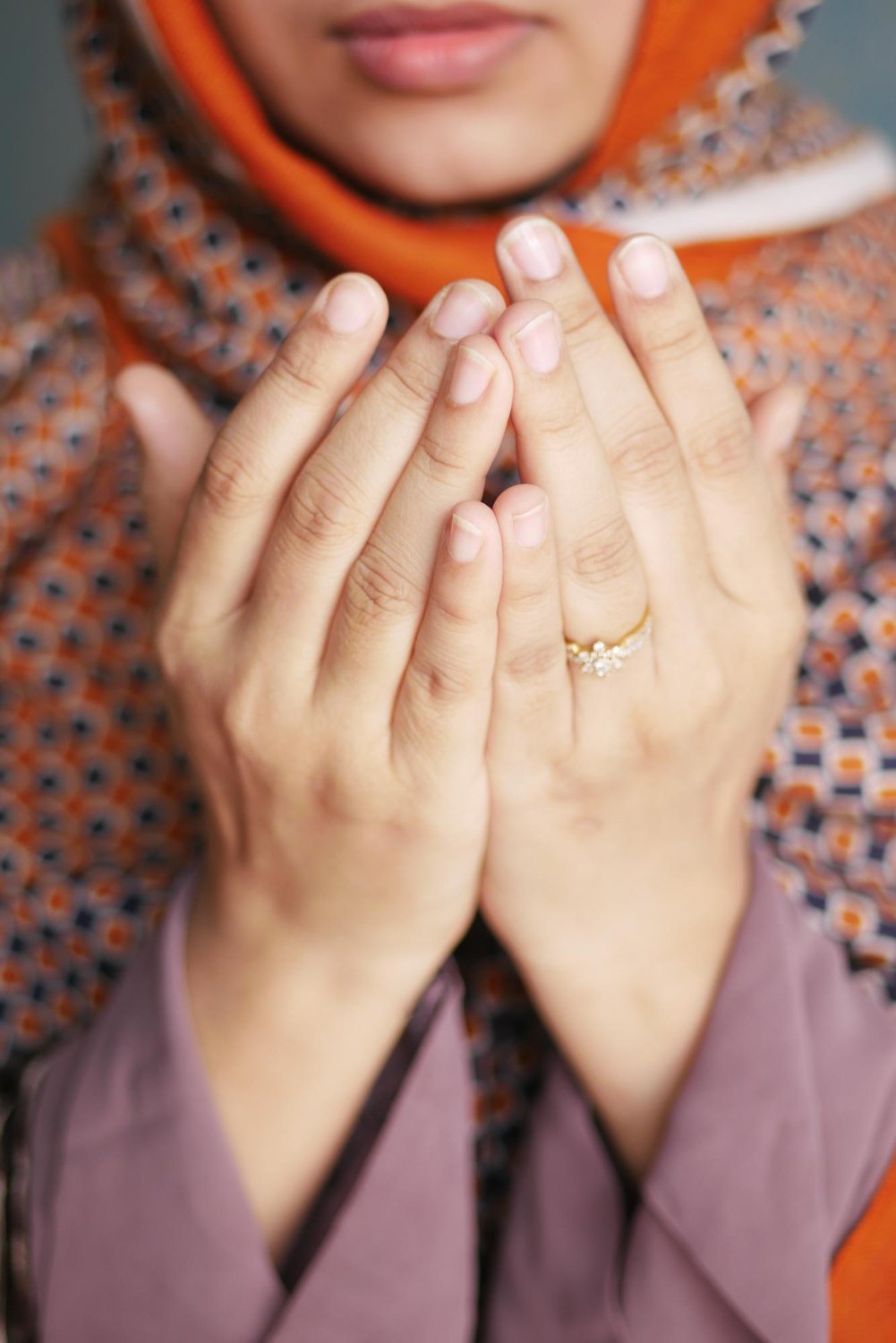
Alternative Practices
Looking beyond traditional wedding rituals, we explore alternative practices in this section. From the exchange of other meaningful items to symbolic gestures, we dive into unique ways that reflect the cultural diversity of matrimonial celebrations. So sit tight and discover fascinating customs that go beyond the confines of traditional wedding rings.
Exchange of Other Items
The exchange of other items is a common practice in Islamic weddings. Instead of wedding rings, couples may choose to exchange different items that hold significance in their culture and traditions. This exchange symbolizes their commitment and unity as they embark on their journey together.
In a traditional Islamic wedding, the exchange of other items can include gifts such as jewelry, clothing, or even money. These items are often chosen with care and consideration, reflecting the couple's values and aspirations for their future life together.
The exchange of other items allows for flexibility and personalization in the wedding ceremony. Couples can select items that hold special meaning to them and their families, adding a unique touch to their wedding traditions.
It's important to note that while the exchange of wedding rings is commonly seen in many cultures, it is not a mandatory practice in Islam. The focus is on the commitment and love between the couple, rather than the specific item exchanged.
A true story that exemplifies the exchange of other items in Islamic weddings is that of Aisha and Ali. On their wedding day, Aisha gifted Ali a watch that belonged to her late father as a symbol of her love, trust, and commitment to him. In return, Ali presented Aisha with a handwritten letter expressing his promises and dedication to their marriage. These meaningful exchanges of personal items showcased their deep connection and added sentimental value to their union.
The exchange of other items in Islamic weddings allows couples to express their love and commitment in a way that aligns with their cultural traditions. It provides an opportunity for personalization and adds a unique touch to the wedding ceremony.
Symbolic Gestures
Symbolic gestures play a vital role in Islamic weddings, as they carry significance and meaning for the couple and their families. These weddings incorporate a range of symbolic gestures to celebrate the union and convey important messages. Here are some commonly practiced symbolic gestures:
- Handwashing ceremony: Prior to the wedding ceremony, both the bride and groom partake in a handwashing ceremony. This ritual symbolizes purity and the cleansing of any negative energy or past transgressions.
- Exchange of gifts: As a symbol of love and appreciation, the couple exchanges gifts. These gifts hold personal significance, like a heartfelt poem or a piece of meaningful jewelry. It serves as a representation of their shared commitment and support for one another.
- Bridal henna ceremony: The bride's hands and feet are adorned with intricate henna designs. This tradition signifies beauty, good luck, and blessings for the couple's future together.
- Nikah contract signing: The signing of the marriage contract, also known as the Nikah, holds great symbolic value in an Islamic wedding. It formalizes the marriage and represents the deep commitment between the bride and groom.
- Sharing a sweet treat: To symbolize the sweetness and blessings in their married life, the couple shares a sweet treat, such as dates or a piece of honey.
- Dua (prayer) for the couple: Family and friends gather to offer prayers for the happiness and success of the couple's marriage. This prayer serves as a symbolic gesture of support and well wishes.
These symbolic gestures not only enhance the sentimental value of Islamic weddings, but also underscore the significance of love, commitment, and unity within the marriage. Each gesture carries profound meaning and serves as a beautiful representation of the couple's journey together.
Some Facts About "Do Muslims Wear Wedding Rings":
- ✅ Wedding rings are not mandatory in Islam, but many Muslims choose to wear them as a symbol of commitment and love. (Source: Reddit)
- ✅ Men are not allowed to wear gold rings according to the teachings of the Prophet Muhammad, while women are permitted to wear gold and other adornments. (Source: Wedding Frontier)
- ✅ Wearing a wedding ring does not guarantee protection for a marriage, as only Allah can safeguard relationships. (Source: Wedding Frontier)
- ✅ Muslims should avoid being boastful when wearing wedding rings, as pridefulness goes against Islamic teachings. (Source: Wedding Frontier)
- ✅ There are differing opinions among scholars regarding which hand to wear a wedding ring, with some suggesting the left hand for women and others proposing the right hand. (Source: Bridilly)
Frequently Asked Questions
Do Muslims wear wedding rings?
Yes, Muslims are allowed to wear wedding rings as a symbol of their commitment and love for one another. However, there are certain considerations and rules they need to keep in mind.
Which hand do Muslims wear their wedding ring on?
In Islam, there is no clear-cut rule regarding which hand to wear a wedding ring. However, it is generally advised for women to wear their wedding ring on the left hand, while men have limited options such as the thumb, ring finger, or little finger.
What is the general rule for wearing wedding rings in Islam?
The general rule is that women should wear their wedding ring on the left hand and men have limited options on which finger to wear it. However, there are differing opinions among scholars of Islam regarding this matter.
Is there a specific finger to wear the wedding ring on in Islam?
There is no specific finger mentioned in Islamic law for wearing a wedding ring. Women can wear them on any finger they prefer, while men have limited options such as the thumb, ring finger, or little finger.
Are wedding rings mandatory in Islam?
No, wearing wedding rings is not mandatory in Islam. It is viewed as a cultural practice and personal choice. However, many Muslims still choose to wear them as a symbol of their commitment and love.
How do older traditions and modern views influence the wearing of wedding rings in Muslim communities?
Older traditions and modern views can have differing interpretations and practices when it comes to wearing wedding rings in Muslim communities. The interpretations of Islamic law can vary, leading to different opinions on which hand or finger to wear the ring on.
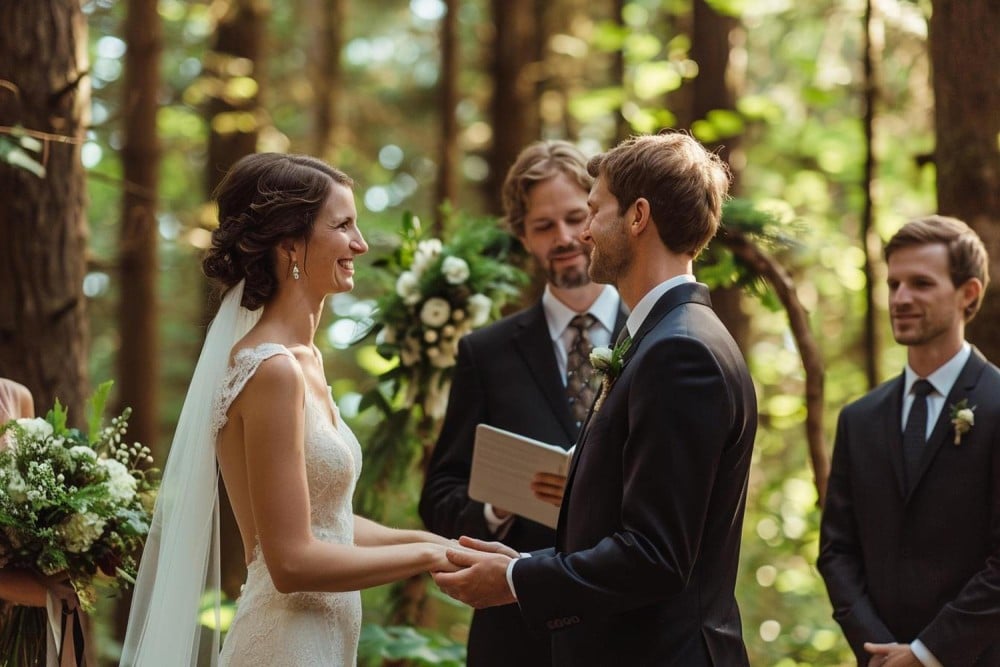 How to become a wedding officiant in tennessee ?Read more
How to become a wedding officiant in tennessee ?Read more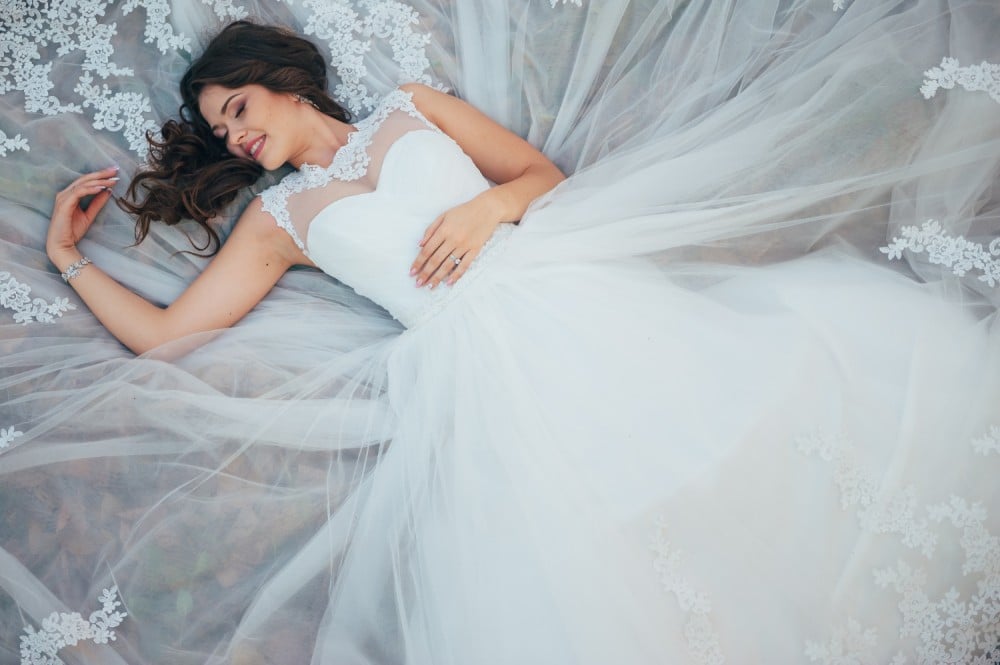 How to bustle a tulle wedding dress ?05/21/2024Posted in: Wedding Fashion & StyleRead more
How to bustle a tulle wedding dress ?05/21/2024Posted in: Wedding Fashion & StyleRead more Planning Your Honeymoon Tips for an Unforgettable Trip05/20/2024Posted in: Wedding PreparationsRead more
Planning Your Honeymoon Tips for an Unforgettable Trip05/20/2024Posted in: Wedding PreparationsRead more The Dos and Donts of Wedding Guest Etiquette05/16/2024Posted in: Wedding Traditions & EtiquetteRead more
The Dos and Donts of Wedding Guest Etiquette05/16/2024Posted in: Wedding Traditions & EtiquetteRead more The Importance of PreWedding Counseling What You Should Know05/13/2024Posted in: Wedding PreparationsRead more
The Importance of PreWedding Counseling What You Should Know05/13/2024Posted in: Wedding PreparationsRead more Can I wear beige to a wedding ?11/14/2023Posted in: Wedding Fashion & StyleOne of the most common questions when it comes to wedding guest attire is whether it's appropriate to wear beige to a...Read more
Can I wear beige to a wedding ?11/14/2023Posted in: Wedding Fashion & StyleOne of the most common questions when it comes to wedding guest attire is whether it's appropriate to wear beige to a...Read more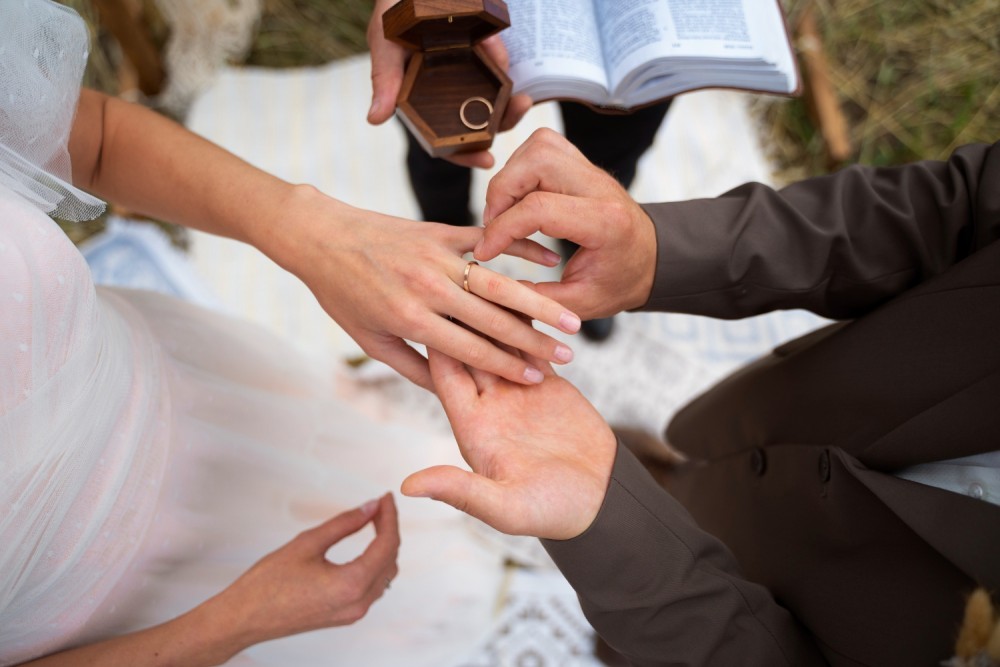 Do Jehovah Witnesses celebrate weddings ?02/29/2024Posted in: Wedding Traditions & EtiquetteJehovah’s Witnesses are known for their distinctive beliefs and practices, but what about weddings? In this...Read more
Do Jehovah Witnesses celebrate weddings ?02/29/2024Posted in: Wedding Traditions & EtiquetteJehovah’s Witnesses are known for their distinctive beliefs and practices, but what about weddings? In this...Read more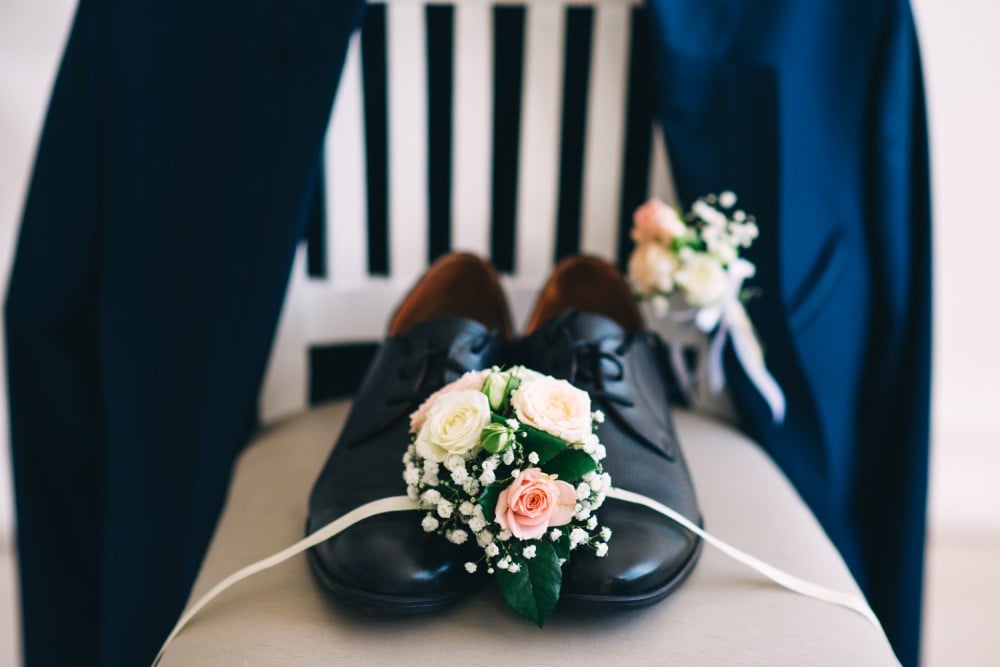 What color shoes with navy dress for Wedding ?08/20/2023Posted in: Wedding Fashion & StyleMatching shoe color with navy dress When teaming shoe color with a navy dress, it's essential to decide on a hue...Read more
What color shoes with navy dress for Wedding ?08/20/2023Posted in: Wedding Fashion & StyleMatching shoe color with navy dress When teaming shoe color with a navy dress, it's essential to decide on a hue...Read more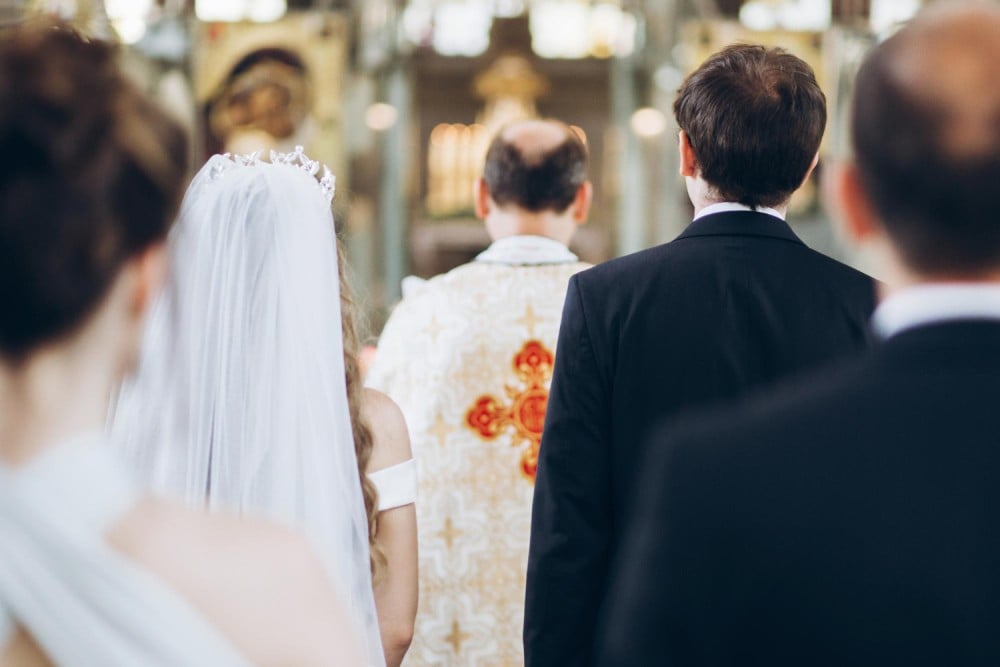 What to wear to a Church Wedding ?09/04/2023Posted in: Wedding Fashion & StyleAre you attending a church wedding and unsure about the dress code? Our latest article provides a deep dive into the...Read more
What to wear to a Church Wedding ?09/04/2023Posted in: Wedding Fashion & StyleAre you attending a church wedding and unsure about the dress code? Our latest article provides a deep dive into the...Read more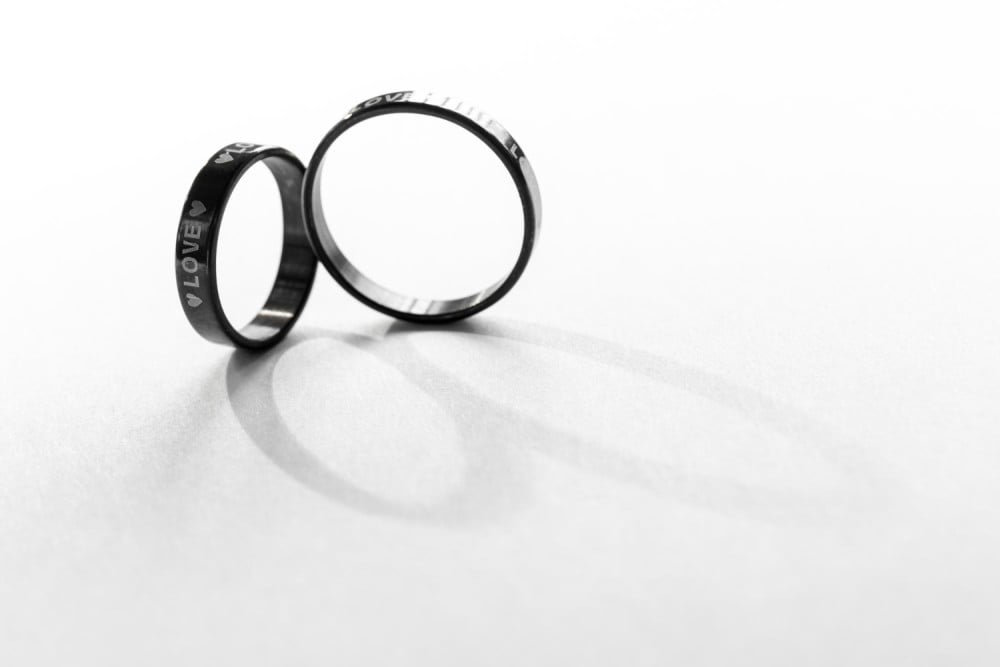 What does a black wedding ring mean ?06/12/2023Posted in: Miscellaneous Wedding AspectsWedding rings are a traditional symbol of love and commitment, but their style and design can vary greatly. In recent...Read more
What does a black wedding ring mean ?06/12/2023Posted in: Miscellaneous Wedding AspectsWedding rings are a traditional symbol of love and commitment, but their style and design can vary greatly. In recent...Read more How to become a wedding officiant in tennessee ?06/27/2024Looking to become a wedding officiant in Tennessee but not sure where to start? This comprehensive guide will walk...Read more
How to become a wedding officiant in tennessee ?06/27/2024Looking to become a wedding officiant in Tennessee but not sure where to start? This comprehensive guide will walk...Read more How to bustle a tulle wedding dress ?05/21/2024Posted in: Wedding Fashion & StyleAre you a bride-to-be with a tulle wedding dress and wondering how to bustle it for the big day? Look no further!...Read more
How to bustle a tulle wedding dress ?05/21/2024Posted in: Wedding Fashion & StyleAre you a bride-to-be with a tulle wedding dress and wondering how to bustle it for the big day? Look no further!...Read more Planning Your Honeymoon Tips for an Unforgettable Trip05/20/2024Posted in: Wedding PreparationsPlanning your honeymoon is an exciting and important step in beginning your life together as a married couple. From...Read more
Planning Your Honeymoon Tips for an Unforgettable Trip05/20/2024Posted in: Wedding PreparationsPlanning your honeymoon is an exciting and important step in beginning your life together as a married couple. From...Read more The Dos and Donts of Wedding Guest Etiquette05/16/2024Posted in: Wedding Traditions & EtiquettePlanning to attend a wedding soon? Make sure you brush up on your wedding guest etiquette to ensure you have a great...Read more
The Dos and Donts of Wedding Guest Etiquette05/16/2024Posted in: Wedding Traditions & EtiquettePlanning to attend a wedding soon? Make sure you brush up on your wedding guest etiquette to ensure you have a great...Read more The Importance of PreWedding Counseling What You Should Know05/13/2024Posted in: Wedding PreparationsAre you and your partner considering pre-marriage counseling but not sure what to expect? This article is here to...Read more
The Importance of PreWedding Counseling What You Should Know05/13/2024Posted in: Wedding PreparationsAre you and your partner considering pre-marriage counseling but not sure what to expect? This article is here to...Read more








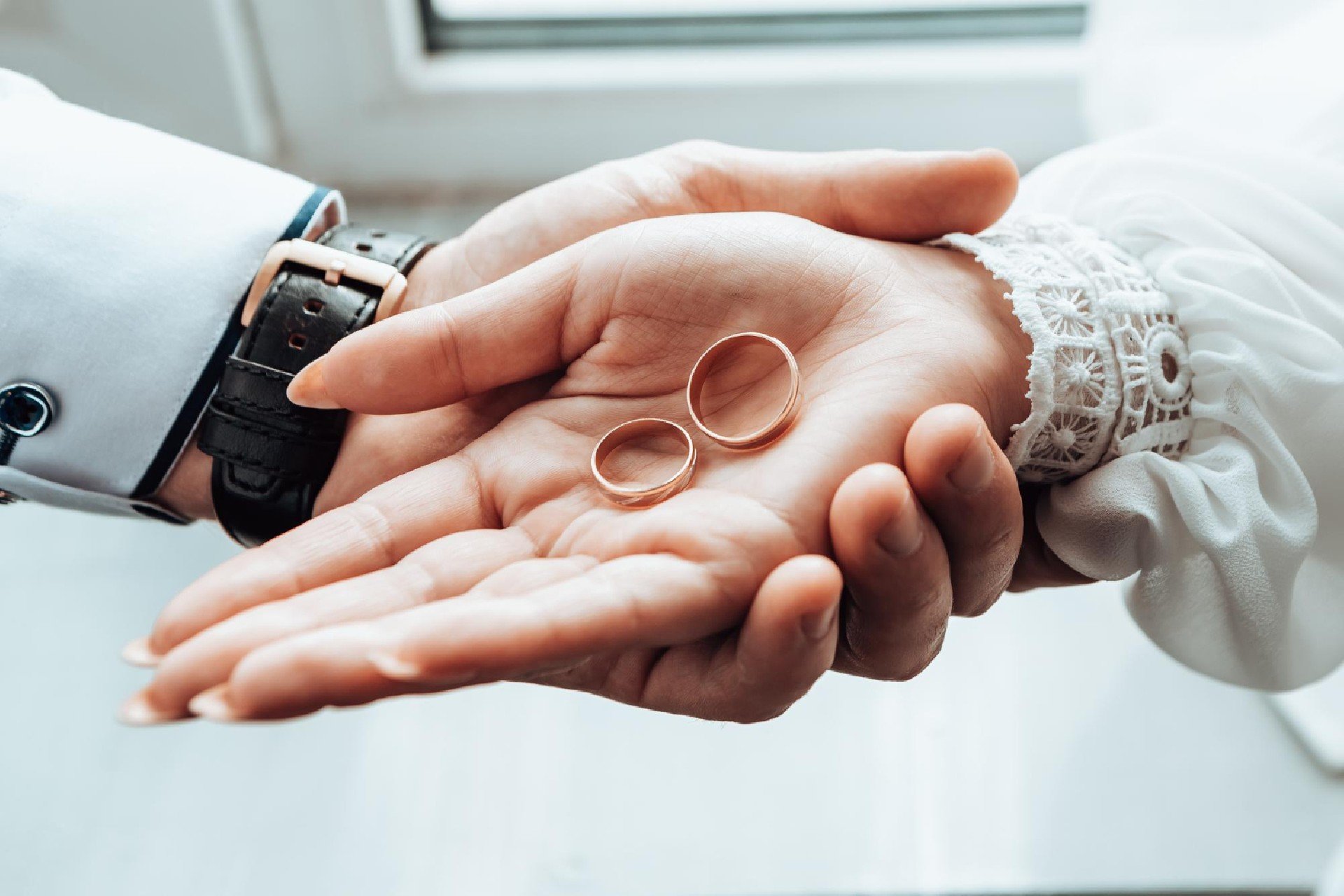


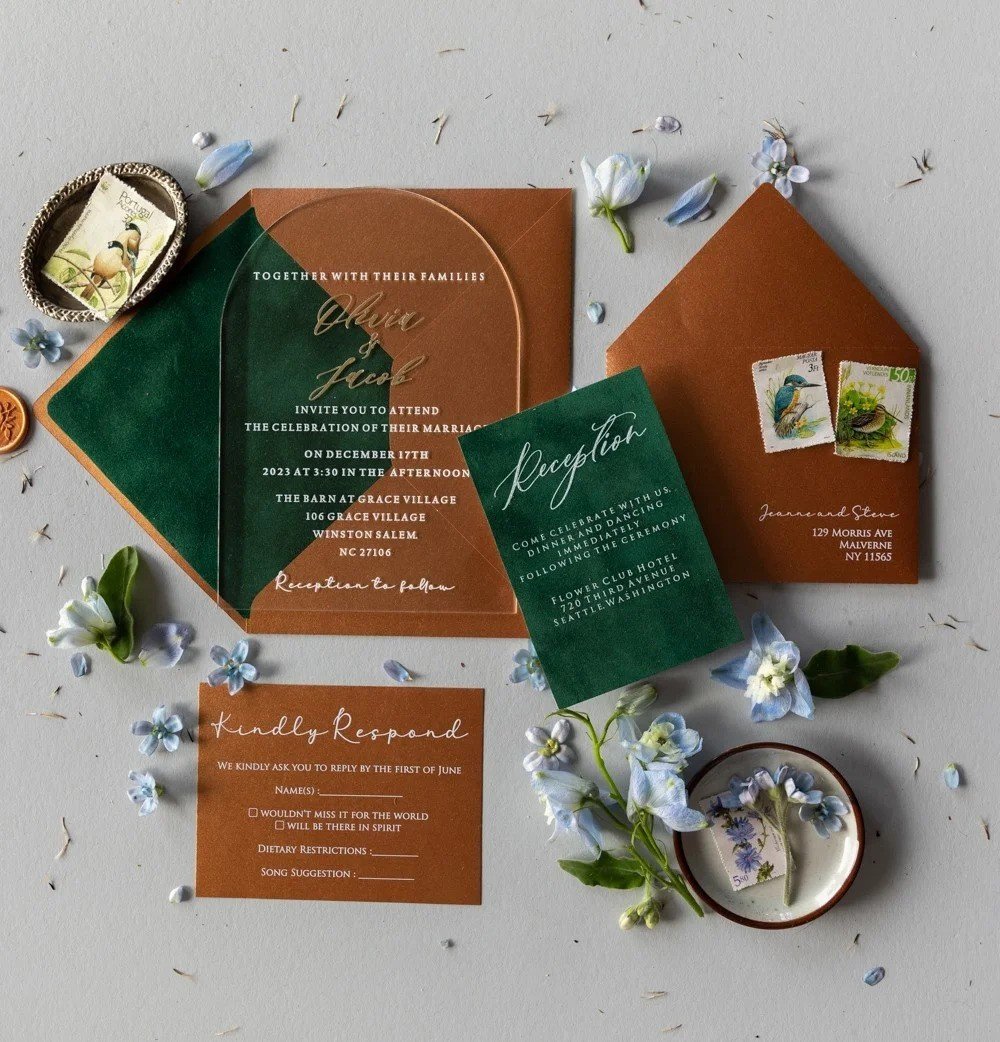
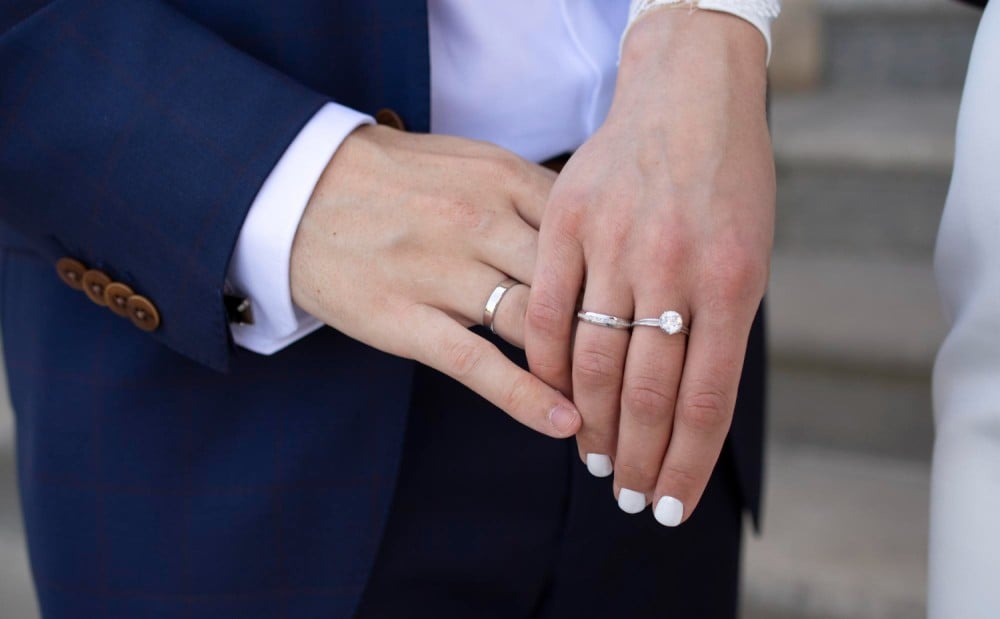
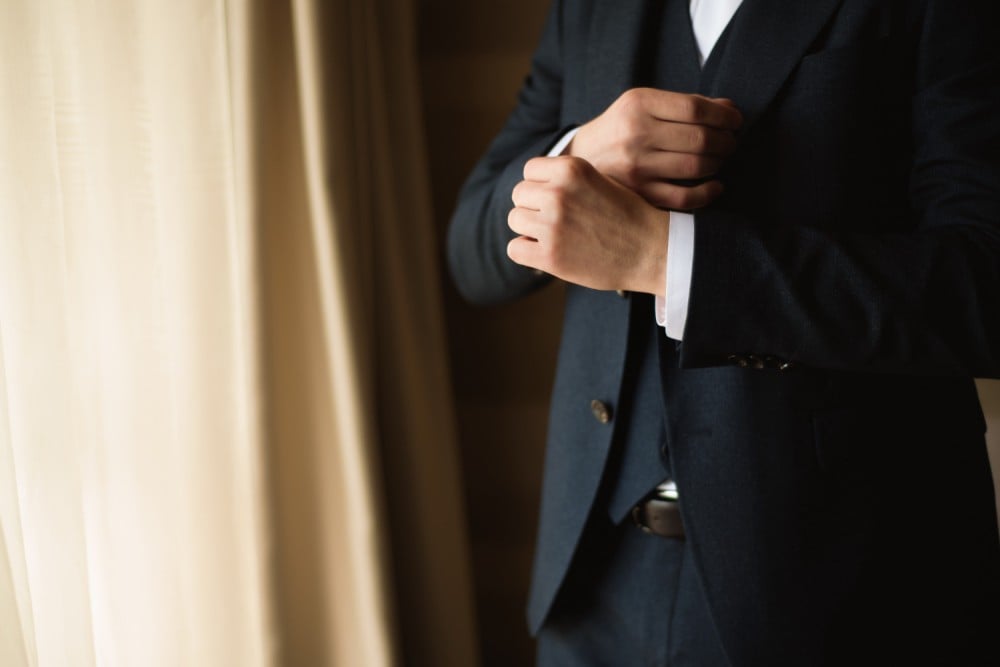
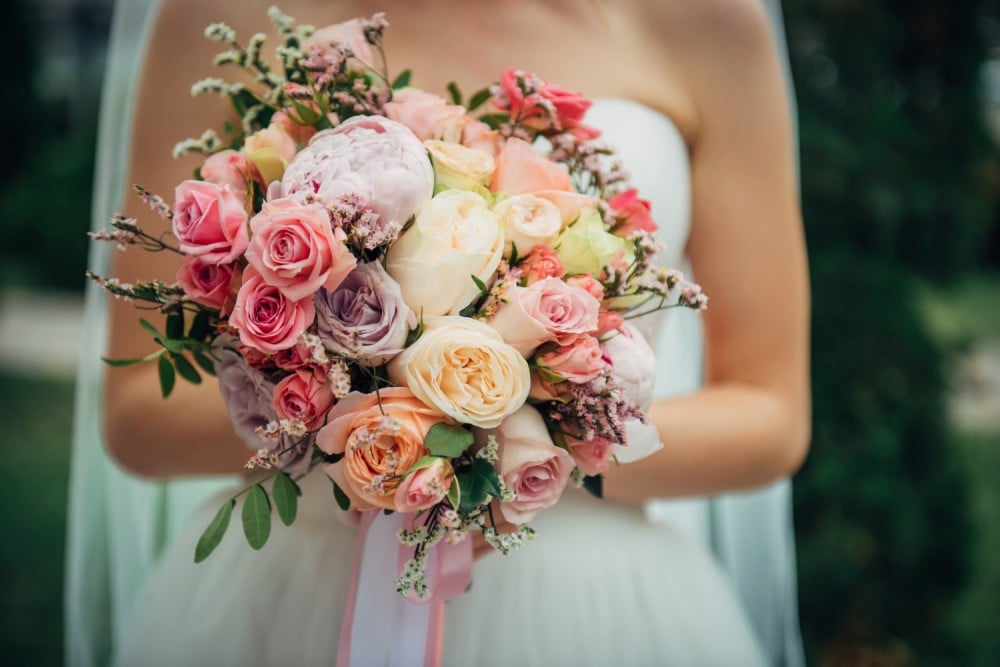
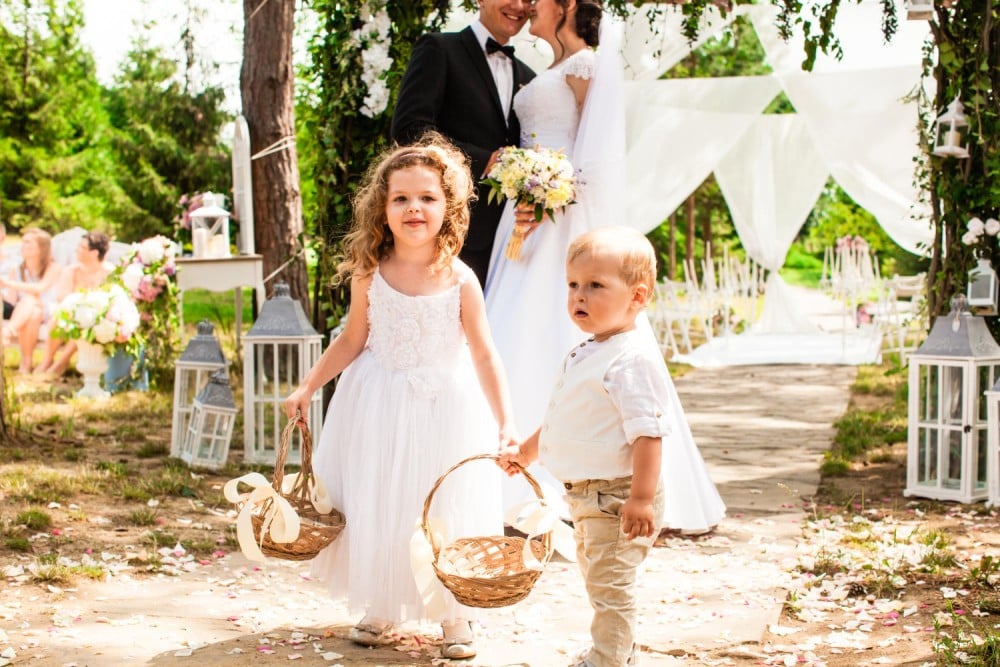
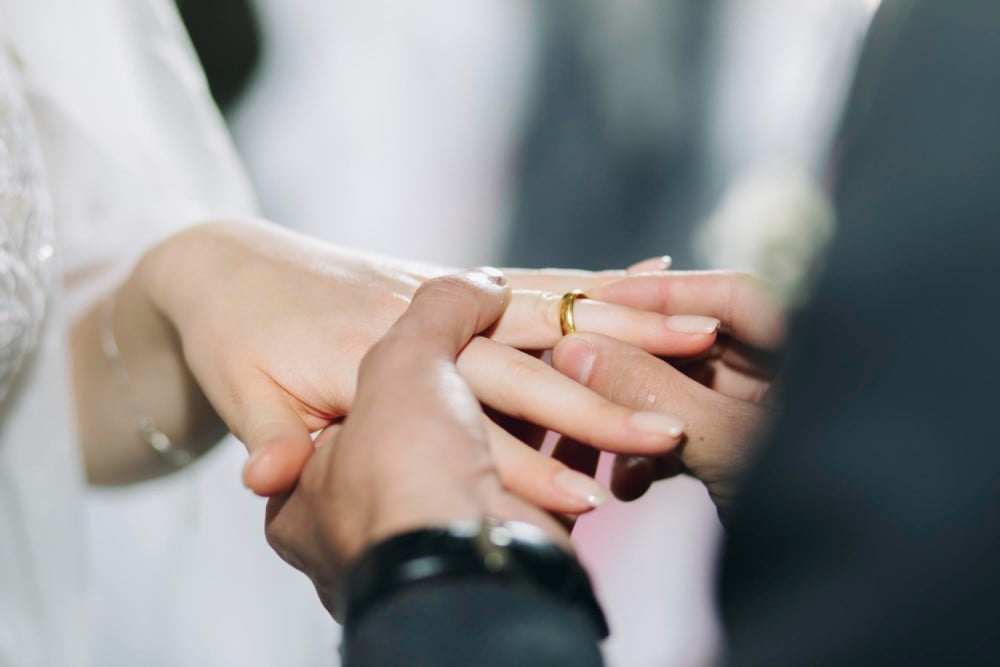
Top authors